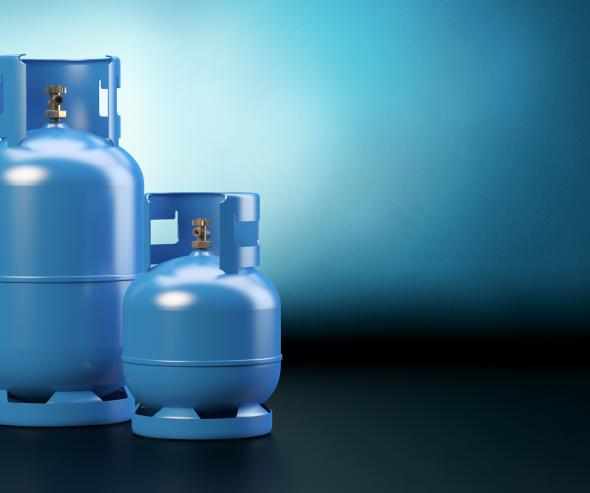14 January 2014: Bulk propane gas

With a view to benefitting consumers, the Autorité de la concurrence has issued several
recommendations aimed at opening up the sector for the distribution of bulk propane to households’ tanks.
It has in particular recommended that consumers are no longer obliged to obtain supplies
exclusively from the propane company that installed and maintains the storage tank.
Following a referral from the French consumer organisation UFC-Que choisir, the Autorité de la concurrence has today published its opinion in which it puts forward several courses of action aimed at improving the functioning of competition in the sector for the distribution of bulk LPG to households.
UFC-Que choisir considers that the oligopolistic structure of the sector – in which more than 90% of supply comes from five propane companies Antargaz, Butagaz, Primagaz, Totalgaz and Vitogaz - has created rigidity in the market as a result of the structure of the contracts that the propane companies enter into with households. These contracts effectively impose the obligation to couple gas supply with other services such as the supply of the tank and maintenance work. They are generally of a very long duration, between three and nine years, and contain stipulations making them difficult to terminate. They are also of an opaque nature from the cost perspective.
Around 700,000 French households use a propane gas tank
Propane gas in tanks, also known as LPG in bulk, is used by around 700,000 French households, mainly for their heating needs. This gas is stored in tanks which are provided by the LPG suppliers or, more rarely, purchased by individuals. These above- or below-ground storage tanks are installed by propane companies in home gardens.
The households in question are for the most part located in rural areas, in locations that are not connected to the natural gas network.
Generally individuals are obliged to obtain their gas supplies from the propane company which installed the tank and carries out its maintenance
Typical propane gas supply contracts for the most part link the exclusive supply of propane to the provision and upkeep of the tank. Throughout the duration of the contract, consumers are therefore captives of the propane company with which they initially entered into a contract and competition between suppliers cannot take place, rendering the cost of the fuel more expensive.
The main consequence of this model, based on the coupling together of different services, is that customers are locked in to the profit of an integrated operator who can act exclusively at the three stages of distribution (installation of the tank, gas provision and tank maintenance) without the consumer having a choice of different offers. The scope of this type of locking-in is all the greater given the length of the agreement (from three to nine years) and the fact that means of terminating the contract are strict and costly (the tank must for example be returned to the propane company at the end of the contract, which is a major operation for an underground tank).
This market ‘locking-in’ is hardly tempered, in practice, by the fact that individuals are able to purchase ownership of their tank.
While most propane contacts, since the early 2000s, include the possibility of households becoming owners of their tank, this possibility is exercised under conditions that can seem very restrictive and is not necessary attractive to consumers.
The capacity as owner/operator of the tank basically implies responsibility for the maintenance and safety of the equipment. However at the present time, maintenance and safety is not offered uncoupled from the supply of the gas itself.
Consumers who own their own tanks are therefore obliged to accept an exclusive offer under the same conditions as non-owners and currently are subject to the same tariffs as consumers who have been supplied with the tank by the propane company, which takes its payment from the supply of gas.
The Autorité de la concurrence’s recommendations
In order to boost the functioning of competition in the sector, the Autorité has drawn up five series of recommendations: these assume an altogether greater current relevance given that the Senate is preparing, on second reading, to re-examine the draft law on consumption that brings in a new section entitled “contracts in relation to liquefied petroleum gas”.
- The consumer, whether or not the owner of the tank, must be free to seek supply from their provider of choice. The supply of gas must systematically be set out in an ad hoc contract, without any condition regarding duration and independently of any other provision for equipment maintenance and monitoring or tank supply.
- Consumers must be able, if they so wish, to buy the tank with which they have been provided. If they own their own tank, it must be possible for them to have the maintenance and monitoring of the equipment that they own carried out by a professional other than the LPG supplier. Furthermore, the Autorité recommends that the relevant authorities ensure that the technical monitoring standards move towards a model that favours the emergence of new players.
- Where consumers do not own their own tanks, they must at least be in a position to identify the different cost components in the supply agreement, so that they can make their choices in full knowledge of the facts;
- In all cases, it is important to encourage strengthening of tariff transparency by publishing all current contracts and scales on the propane companies’ websites;
- Finally, as set out in the draft law on consumption that is currently under discussion, the total duration of contracts relating to the supply of tanks and their upkeep must be limited to five years.
> Press contact: André Piérard - Tel.: (+33) 1 55 04 02 28
